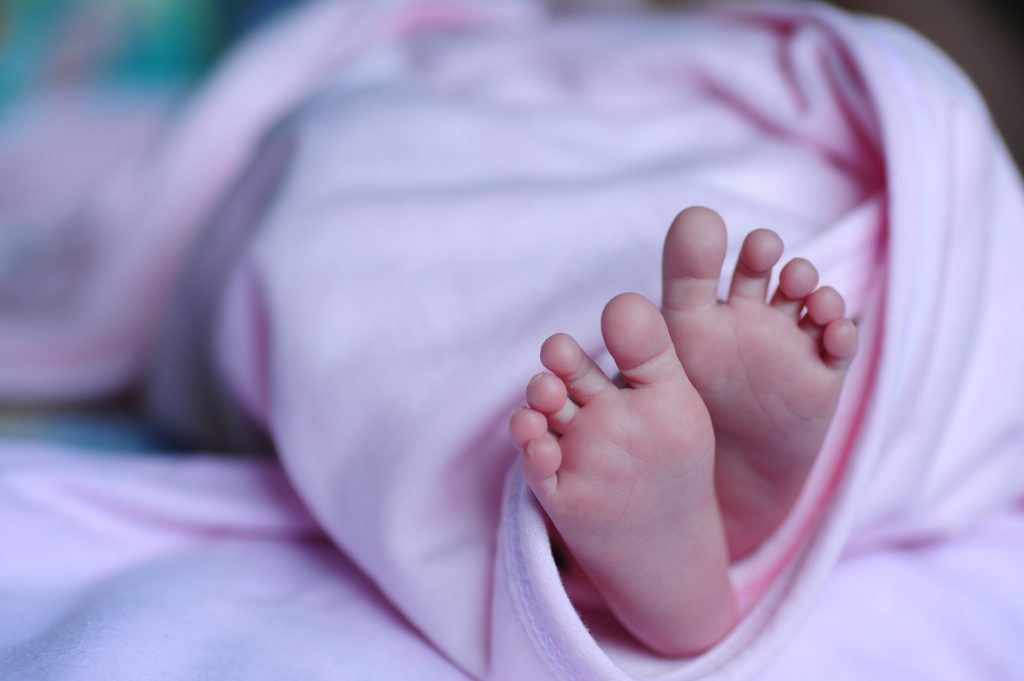- Calls to this hotline are currently being directed to Within Health, Fay or Eating Disorder Solutions
- Representatives are standing by 24/7 to help answer your questions
- All calls are confidential and HIPAA compliant
- There is no obligation or cost to call
- Eating Disorder Hope does not receive any commissions or fees dependent upon which provider you select
- Additional treatment providers are located on our directory or samhsa.gov
Obstetric / Gynecological Problems Associated With Eating Disorders

Early in the infancy of eating disorder knowledge and research, it was first believed that pregnant women who suffered from anorexia nervosa were rare.
It was also believed the endocrinological disturbance associated with starvation coupled with the psychological and psychosocial features of the disorder was also rare [1].
More recent studies though have not found differences in fertility between women with histories of anorexia nervosa and controls, demonstrating that despite high levels of menstrual disturbances, women with anorexia nervosa are becoming pregnant.
Pregnancy in Women with Eating Disorders
Multiple studies have shown that fertility rates among women with lifetime anorexia nervosa do not differ from that of the general population [1]. Two large studies found that women with current anorexia nervosa have an earlier age of pregnancy compared to their non-eating disorder female peers.
The second study conducted by the Norwegian Mother and Child Cohort study, found that the risk of having an unplanned pregnancy was significantly higher with women who had current anorexia nervosa in the 6 months prior to pregnancy [1]. The researchers hypothesized that the absence or irregularity of menstruation in these women may lead them to believe that contraception is unlikely and a lesser need for adherence to guidelines for proper contraceptive use.
Women with eating disorders tend to have lower birth weights than their non-eating disordered peers, but do not tend to have increased complications with delivery. There seems to be no difference in preterm births, gestational hypertension/preeclampsia, induced labor, vacuum extraction, use of forceps, or breech presentation in women with past or current AN.
Women with AN thought do seen to have higher risk of cesarean section births [1]. Common issues seen in women with eating disorders include, infertility, unplanned pregnancy, miscarriage, poor nutrition during pregnancy, the baby having a small head circumference, postpartum depression and anxiety, sexual dysfunction and complications in the treatment for gynecological cancers.
 There is also an earlier cessation of breastfeeding in those with AN, increased polycystic ovarian syndrome in bulimia nervosa (BN), and complications of obesity as a result of binge eating disorder [2].
There is also an earlier cessation of breastfeeding in those with AN, increased polycystic ovarian syndrome in bulimia nervosa (BN), and complications of obesity as a result of binge eating disorder [2].
Other studies show that women with eating disorders typically do not have menstrual cycles, and approximately 50% of women struggling with BN, do not have regular cycles [3].The absence of menstruation can be caused by reduced calorie intake, excessive exercise and/or psychological stress.
This can lead to a challenge if the woman is wanting to become pregnant. The most common complications associated with eating disorder is premature labor, low birth weight, stillbirth or fetal death, increased risk of cesarean birth, delayed fetal growth, respiratory problems, gestational diabetes, complications during labor, depression, miscarriage, and preeclampsia [3].
Increased Risks to Mother and Baby
With a woman who is pregnant and has AN, and diabetes or placental infarction, the baby has an increased risk of developing AN. Children in utero who had neonatal heart problems, hyperthermia, tremors, or hyporeactivity also showed a higher risk of developing AN in teen years [4]. Bulimia in children later in teens years was associated with in utero placental infarction, neonatal hyporeactivity, early difficulties with eating, shorter than average birth length and low birth weight [4].
Dr Favaro from the University of Padua, Italy stated that Obstetric complications can have more than one role in eating disorders by first causing hypoxic-induced damage to the brain that impairs neurodevelopment of the fetus, and secondly the adequacy of nutrition during pregnancy and immediate postnatal period seems to influence the nutritional status of the adult and appetite programming throughout life [4].
Dr Favaro looked at the obstetric records of 114 women with AN, 73 BN, and a control group of 554 with neither AN or BN. The authors found that several complications were significant independent predictors for AN. These were maternal anemia, diabetes mellitus, preeclampsia, placental infarction, neonatal cardiac problems and hyporeactivity [4].
With those with BN, it was significantly associated with neonatal hyporeactivity, early eating difficulties, and low birth weight for gestational age. Infants who were shorter for their gestational age were significantly more likely to develop BN rather than AN [4].
Impact on Pregnancy
 Studies have shown that women with eating disorders do become pregnant and carry their baby to term. There are differences between the re-emergence in eating disorder symptoms following birth between the various types of disorders. Most studies show that with children, there are numerous neurodevelopment and post delivery issues with women struggling with an eating disorder than their peers.
Studies have shown that women with eating disorders do become pregnant and carry their baby to term. There are differences between the re-emergence in eating disorder symptoms following birth between the various types of disorders. Most studies show that with children, there are numerous neurodevelopment and post delivery issues with women struggling with an eating disorder than their peers.
In conclusion, it is fair to say that women struggling with an eating disorder and are pregnant, increase the risk of low birth weight and length, neonatal issues while in utero, and the development of eating disorders in the children when reach teen years regardless of the eating disorder. Higher risk of cesarean birth versus vaginal is also more common with women who have eating disorders, as is complications during labor and the strong possibility of postpartum mental health issues following birth.
 About the Author: Libby Lyons, MSW, LCSW, CEDS is a specialist in the eating disorder field. Libby has been treating eating disorders for 10 years within the St. Louis area, and enjoys working with individuals of all ages.
About the Author: Libby Lyons, MSW, LCSW, CEDS is a specialist in the eating disorder field. Libby has been treating eating disorders for 10 years within the St. Louis area, and enjoys working with individuals of all ages.
References:
[1] https://www.ncbi.nlm.nih.gov/pmc/articles/PMC3192363/[2] http://onlinelibrary.wiley.com/doi/10.1002/eat.22483/full
[3] http://americanpregnancy.org/pregnancy-health/pregnancy-and-eating-disorders/
[4] http://www.medpagetoday.com/obgyn/pregnancy/2427
The opinions and views of our guest contributors are shared to provide a broad perspective of eating disorders. These are not necessarily the views of Eating Disorder Hope, but an effort to offer discussion of various issues by different concerned individuals.
We at Eating Disorder Hope understand that eating disorders result from a combination of environmental and genetic factors. If you or a loved one are suffering from an eating disorder, please know that there is hope for you, and seek immediate professional help.
Reviewed By: Jacquelyn Ekern, MS, LPC on February 1, 2017.
Published on EatingDisorderHope.com

The EatingDisorderHope.com editorial team comprises experienced writers, editors, and medical reviewers specializing in eating disorders, treatment, and mental and behavioral health.

